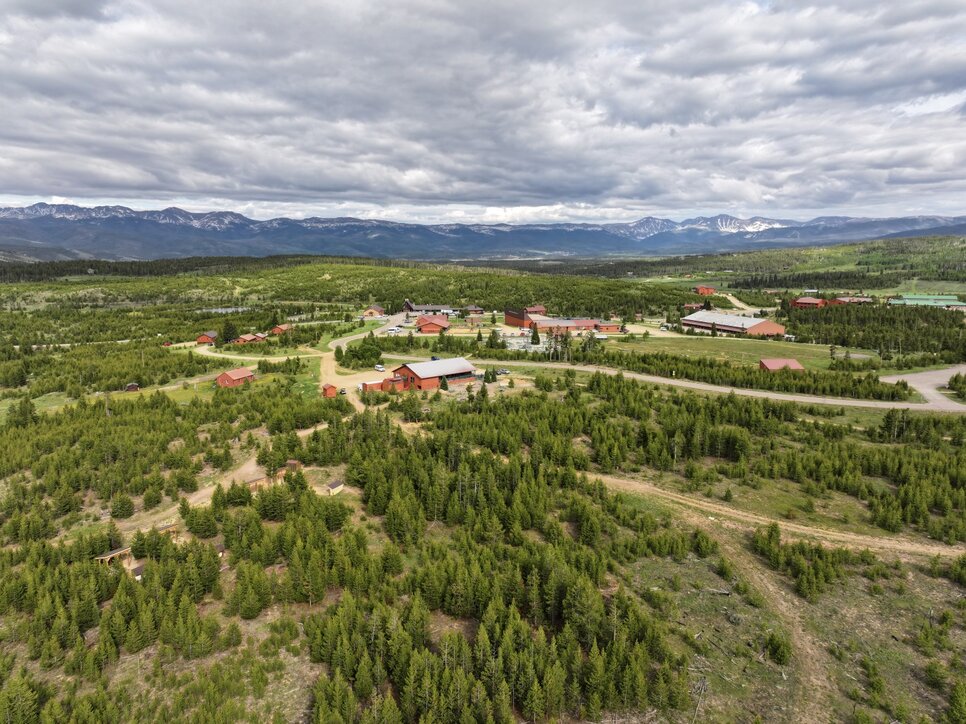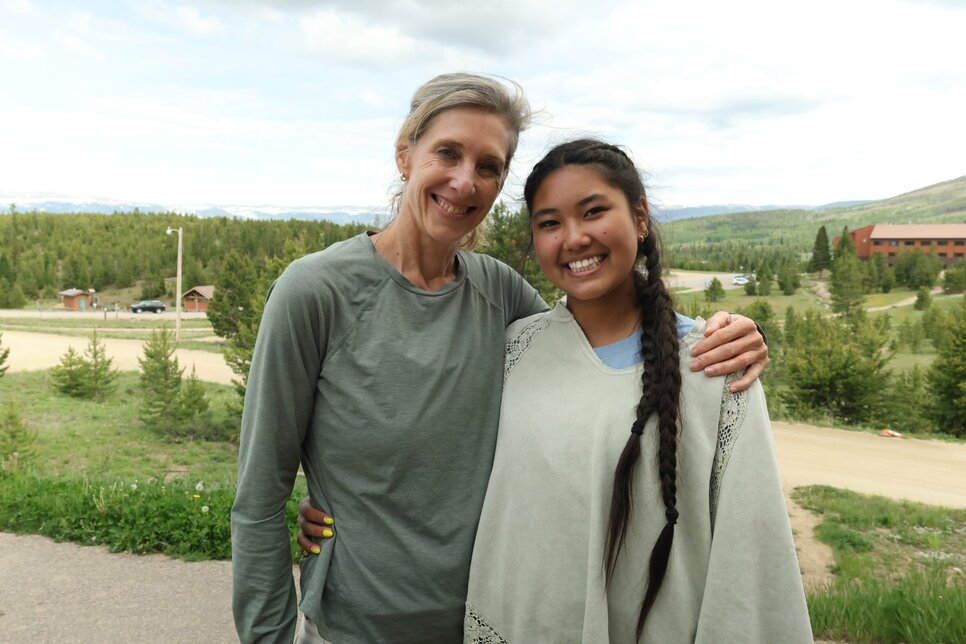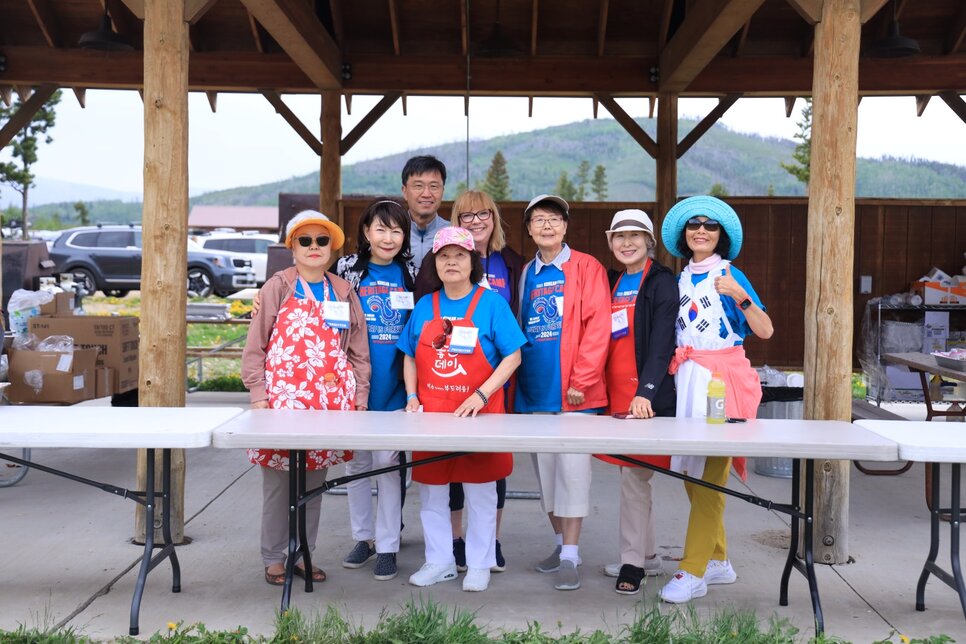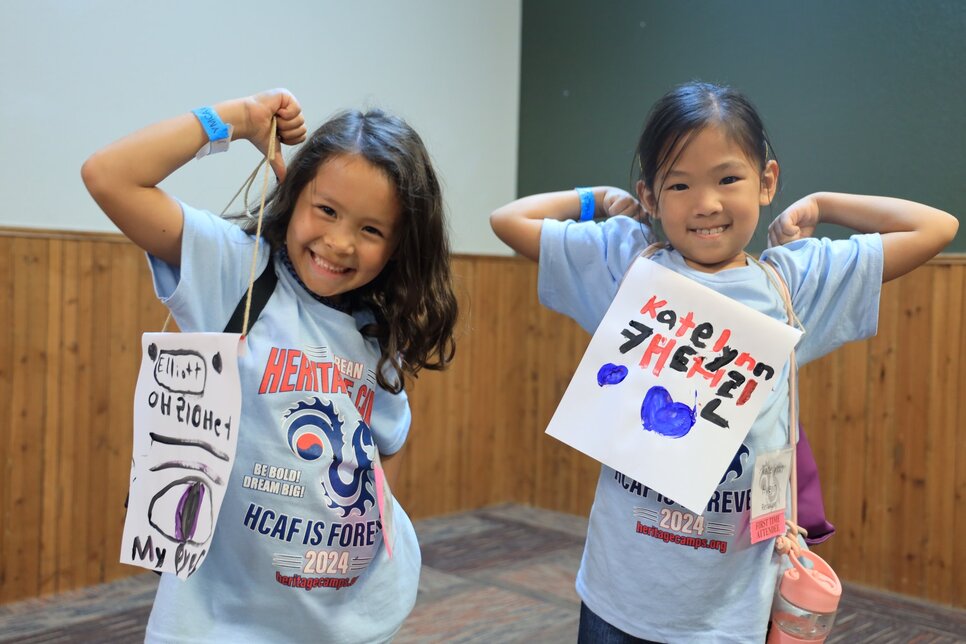Culture, kimchi and community at 9,000 feet
share

FRASER, Colo. — “Kimchi!”
That’s what about two dozen adopted, South Korean elementary schoolers shouted to the camera as they posed for a photo during an activity at the Korean Cultural Heritage Camp, a four-day retreat hosted at the YMCA of the Rockies Snow Mountain Ranch in northwestern Colorado.
The camp offers adopted South Korean children and their adoptive parents intimate, community-driven cultural experiences aimed to help foster and nurture pride in the child’s South Korean roots.
Each child raised a hand-painted flag with their American and Korean names written in English and Hangul.
Big, toothy grins stretched underneath smiling eyes that the day’s volunteer storyteller (and her accompanying puppet) described as ”kissing in the corners.”
For some of the hundreds of kids in attendance, it was the first time they’d been surrounded by other Korean adoptees in Colorado.
Eric Bertram first participated in the camp in 1996 as a third grader.
“This was the first time that I was surrounded by other Asian faces as really the majority of the people around me,” said Bertram. “I couldn’t have thought of a better starting point to build a much better understanding of what it means to be a Korean adoptee.”
The Korean Cultural Heritage Camp began 33 years ago when a collection of about 40 adoptive parents, all with newly adopted South Korean children yet with little reference for South Korean culture, united for a community-building, culturally-immersive weekend get-together.

The Korean Cultural Heritage Camp is hosted at the YMCA Mountain Ranch near Granby, Colorado.
Photo: Jeremy Moore, Rocky Mountain PBS
The once small gathering has since ballooned into a four-day retreat, which at its peak welcomed more than 1000 families from across the country.
The Korean camp is one of eight different cultural camps, which include similar retreats for African/Caribbean adoptive families, Latin American adoptive families and Russian/Eastern European/Central Asian adoptive families, among others.
Bertam is now a coordinator for the elementary school groups. He continues to stay in touch with friends he made from his time at camp, and he wants to help other young visitors form their own long-lasting relationships.
Declining South Korean adoption rates in the United States has shrunken the Korean camp. Around the late 1970s, South Korea imposed strict quotas on the number of children being sent overseas in an effort to encourage domestic adoptions.
However, the stigma of adoption in Korea, matched with complex issues of declining national birth rates, has made conversations about adoption policy very complicated. While restrictions have eased since the 80s, South Korea still manages foreign adoption tightly.
About 100 families from across the country, with adoptees ranging from elementary school-age to high schoolers, trekked to the remote YMCA Snow Mountain Ranch, an expansive natural haven of recreational buildings and activity centers including hiking, archery and mini golf.
Attending families stay for four days — Friday evening through Monday afternoon — during which they will attend in an introductory “opening ceremony,” participate in various cultural activities and seminars and conclude with a teary-eyed closing ceremony.
Only adoptive parents usually attend, though non-adopted siblings and extended family sometimes join as well to experience the camp. Because the activities and immersion events are meant to educate parents as much as the kids, adoptive parents are required to join. Children cannot be sent on their own.

Kori (right) and her adoptive mother, Kristin, have been attending camp for 17 years.
Photo: Chase McCleary, Rocky Mountain PBS
Parents are also required to volunteer, which may include assisting on-site staff with cultural events, meals and other activities. This ensures that parents are even further involved and present throughout the camp.
Children enjoyed dance lessons from a Denver-based kpop group, traditional Korean drumming lessons and Korean cooking lessons. Parents also learned about Korean cuisine while joining a number of informational panels and discussions on the complexities of being both an adoptive parent, as well as a parent of a South Korean child.
The camp offers many a first look into South Korean food, art, dance and language. Nearly all children in attendance were adopted before they turned one, meaning most have no memories of their country of birth.
An array of hot meals, including dak bulgogi (marinated chicken), dobu (tofu) and large pans of bap (rice) and kimchi, was prepared and served by volunteers from the Korean community.

Community volunteers from around the state prepared home-cooked meals for campers.
Photo: Chase McCleary, Rocky Mountain PBS
Bertram, along with other attendees, ranked the home-cooked Korean meals among his favorite parts of the camp.
“To experience the food is a huge thing [for me], because we don’t have that where I live,” said Kori Mayfield, a high school attendee.
Mayfield, a Golden resident, has been attending the Korean Heritage Camp since she was three years old. Now a high school senior and in her final year of the camp, Mayfield reflected on the personal growth she experienced throughout her 17 years attending.
“In Colorado, there’s not a lot of Asian diversity,” said Mayfield. “So it was really nice for me to see that being so little, like, ‘Oh, there are more of me!’”
There are about 300,000 people identifying as Asian (including multi-racially) living in Colorado, according to a 2022 APIAVote report. The same report states that only about 11% of that AAPI population identifies as Korean.
However, other sources report there could be closer to 50,000 Korean-descended Coloradans, a growing number that has inspired conversations of establishing a South Korean Consulate in Aurora, which hosts the state’s largest South Korean population.
Between the river rafting, socializing and eating, Mayfield specifically remembered the impact of the “Heart Talks” she took part in as an elementary schooler.
In the talks, the children combined an art workshop with discussions about the complexities and challenges of being adopted.
Growing up with few Asian peers, much less adopted South Korean peers, Mayfield, who grew up in Golden, Colorado, said she experienced ostracization and periodic bullying, particularly in elementary school.
“[Bullying] was definitely a big thing because little kids just don’t really know how to process things like that,” said Mayfield.
Bertram sympathized, noting that throughout his time at camp, he’s heard many kids dealing with the same questions and insults.
“I got asked a good deal of times, ‘Where are you really from?’ ‘When are you going back to China?’ ‘Why did your parents give you up?’” said Bertram.
Bertam, who is from Wheat Ridge, Colorado, understood that many times these questions came from a good place. However, they still contributed to his feeling like an outsider despite being raised in Colorado.
Anti-Asian American and Pacific Islander hate has long stained United States history, and after seeing marked upticks in AAPI hate and violence following the COVID-19 pandemic, it has continued to be a pervasive problem nationwide.
Colorado is no exception, with many fear that rising rates and underreporting may perpetuate such negativity within the state. Asian-Americans are found to both experience racial harassment at high levels, yet are among the least likely to report any such activity, according to groups like the Asian Roundtable of Colorado and Action Against Hate.
Bertram underlined that these shared experiences of marginalization, and then the subsequent unification and reliance learned through integrating with the Korean culture, are precisely the purpose of the camp.
“We know what it’s like to feel like an outsider… and we don’t have to feel that way here,” said Bertram. “And that sense of acceptance has always been a strong part of what makes the camp unique and special.”
Elliot and Kaitlynn, two first-time campers in the elementary school group, were both excited to be surrounded by kids that looked like them. Neither had any Korean friends at home.

Elliott (left) and Katelynn (right) hold up their hand-painted name banners.
Photo: Chase McCleary, Rocky Mountain PBS
“It’s kind of a new thing for me,” said Kaitlynn, “[I’ve] barely even met a Korean before.”
They were quick to become friends, and the two were sure to sit together while listening to a reading of Joanna Ho and Liz Kleinrock’s “Eyes that Weave the World’s Wonders,” a children’s picture book about a young Asian adoptee learning to love the differences between her and her adoptive family’s eyes.
“I liked the story, because it tells us that we each have our own eyes,” said Elliot.
“Everybody’s unique in their own way, even us,” said Kaitlynn.
“So even though people have different similarities, I think we all feel good about our different similarities.”
For more information on AAPI hate or to report a hate incident, visit the Stop AAPI Hate website, or call the Action Against Hate hotline, which offers resources in multiple languages, including Korean: 720-588-0075.
